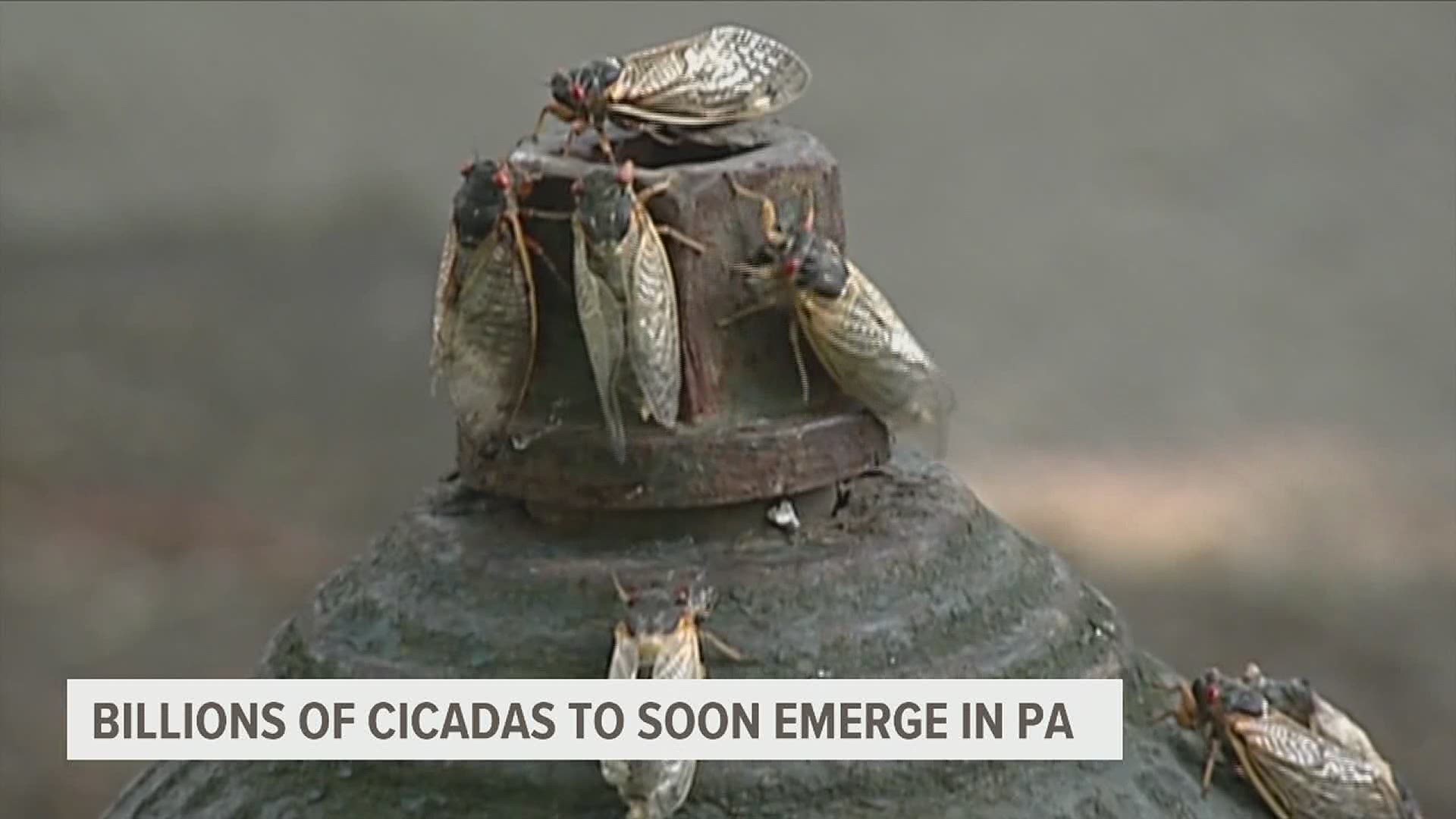YORK, Pa. — Brood X: Cicadas are types of periodical cicadas that emerge every 17 years.
You will be able to find them in states like Pennsylvania, Indiana and Ohio.
"There's going to be literally billions of these periodical cicadas emerging from the ground," said Bruce Hellerick, the Director of Technical Services at BrightView Landscape Services.
The cicadas will emerge from the ground when the soil temperature reaches 64 degrees.
"It's expected to start mid-may and go to the beginning of June," said Hellerick.
Their primary goal is to mate and one of the most unique things about this phenomenon is their high pitch call.
"The sound can be between kind of like a motorcycle and a chainsaw, that's how loud they will be," he said.
After they mate, the male cicadas will die and the females will go up to the trees and lay up to 500 eggs.
"And then she will die, and then these eggs will hatch and fall to the ground. and then they return back to the ground and then 17 years later they come back again," he said.
Other than the loud noise they emit, experts say they're harmless.
"They're not going to bite, they're not going to sting you, they're not going to harm you," he said.
And even if you're not a fan of bugs, experts say the one of a kind event is worth checking out.
Some additional information:
- Males and females will emerge at about the same time and mate. (After mating the males die)
- The females will cut a long slit in small twigs in trees.
- The females will lay their eggs in the slit. (After this the females die)
- The eggs will hatch in the slit and the nymphs will fall to the ground and burrow into the soil and then reemerge 17 years later.
- In a year or two the twigs with slits will break off and fall to the ground.
- NOTE: Can cause some to severe damage to fruit trees.
In this case, homeowners can cover their trees with cheese cloth or tight bird netting to prevent the cicada’s from reaching the twigs.
Things to keep in mind:
1. You can’t stop the emergence.
2. They don’t feed, bite or sting (only mate and die) so we can’t really spray to kill.
3. When grouped in masses their “Mating Song” can be deafening.
4. In areas with masses, their dead bodies really stink up the area for a couple of weeks (birds, squirrels and other rodents feed on their dead bodies)
5. In areas with heavy cicada populations branches could sell additional services to blow off the dead bodies from roads, sidewalks and patios multiple times a day for 2 to 3 weeks.

